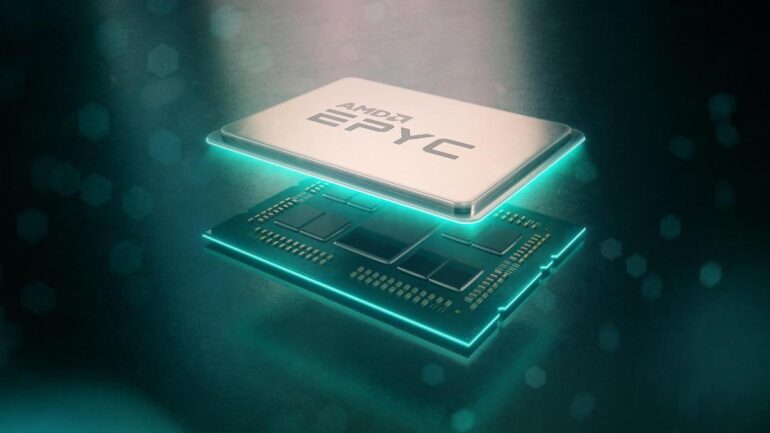TL;DR:
- Desktop AI integration remains a distant goal, according to AMD’s Justin Galton.
- AMD’s dedicated AI accelerator is currently embedded in the Ryzen 7040 CPU.
- Small to medium-sized businesses may not be quick to adopt AI technology.
- Microsoft’s focus on Windows 11 and competition with Apple delays AI integration in more CPUs.
- Intel plans to introduce AI co-processors in its “Meteor Lake” CPUs by late 2023.
- AMD anticipates multiple AI-equipped silicon releases in 2024.
- Collaboration with industry developers aims to bring AI to vertical applications in 2024.
- AMD aims to encourage PC fleet refreshes with AI-ready processors.
- Many buyers still opt for budget-friendly Ryzen 5000 and 6000 models.
- AMD extends support for these processor families into early 2024.
- ASUS is preparing AMD-powered business machines for a 2024 release.
- AMD is developing an environmental impact modeling tool for product sustainability.
- AMD seeks to surpass a 20 percent market share in commercial PCs by 2024.
Main AI News:
In the world of desktop computing, the integration of artificial intelligence (AI) remains elusive, and it may stay that way for the foreseeable future, as per Justin Galton, the director and worldwide segment leader for AMD’s commercial client business. In an exclusive conversation with The Register at a recent event in Sydney, Galton shed light on AMD’s stance, revealing that the chipmaker has chosen to embed its dedicated AI accelerator into just one CPU, namely the Ryzen 7040. The reason? AI, it seems, currently holds its relevance at “the top of the stack.”
Galton is skeptical about the enthusiasm of small to medium-sized businesses for AI integration. He attributes part of this skepticism to Microsoft’s current priorities. The tech giant is primarily focused on transitioning its user base from Windows 10 to Windows 11 while also taking on Apple in the competitive arena. Despite Microsoft’s intentions to offload processing tasks to AMD’s AI engine through its AI Copilots, the integration of AI into more CPUs is not on the fast track.
In contrast, Intel has ambitious plans to introduce an AI co-processor known as a “VPU” into all variants of its “Meteor Lake” CPUs, expected to make their debut by late 2023. This move positions Intel to offer a broader range of AI-capable desktop processors compared to AMD.
However, Galton assures that AMD has its own roadmap in place. He hints at multiple releases of AI-equipped silicon slated for 2024. The key question, though, is whether there will be a demand for these products. AMD is actively collaborating with developers and vendors specializing in vertical industry applications to incorporate AI capabilities into their offerings. However, these AI-infused products are not expected to hit the market until 2024.
AMD’s strategy revolves around encouraging organizations to consider AI-ready processors when refreshing their PC fleets. Galton points out that many customers adhere to five-year PC refresh cycles, making them potential candidates for CPUs capable of offloading AI computations to specialized circuitry during the lifespan of their next PC fleet.
In the short term, Galton acknowledges that many buyers are content with acquiring budget-friendly PCs featuring Ryzen 5000 and 6000 models. A contributing factor to this trend is Intel’s surplus inventory of comparable processors, driving demand for competitively priced products.
To support their loyal customer base, AMD has extended technical and marketing support for the Ryzen 5000 and 6000 processor families, with plans for continued support into early 2024.
Beyond the realm of AI, Galton envisions several factors that will entice buyers to explore more exciting options. One of them is ASUS’s preparations to launch AMD-powered business machines in 2024. Additionally, AMD is working on a tool that will quantify the environmental impact of its products, aiming to provide compelling data for eco-conscious buyers.
Currently holding a market share of between 15 and 20 percent in the commercial PC segment, AMD aims to breach the 20 percent mark by 2024.
Conclusion:
The desktop AI market is still evolving, with AMD positioning itself for future growth. The delayed adoption of AI by small to medium-sized businesses and competitive pressures from Intel and Microsoft’s priorities create uncertainty. However, AMD’s commitment to AI-equipped silicon and eco-conscious initiatives indicates a strategic move to capture a larger share of the commercial PC market. Organizations should monitor these developments closely to make informed decisions about their PC fleet upgrades.

